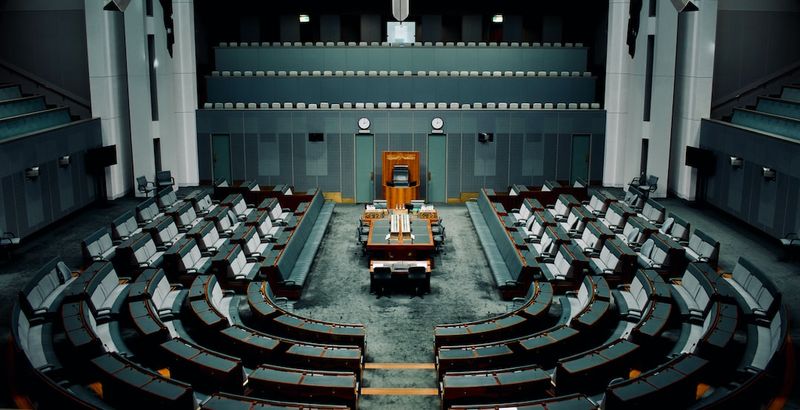Blast rocks Latin Quarter in Paris: Injuries reported, two missing
Explosion shatters tranquility in historic district
A powerful explosion shook the Latin Quarter in central Paris on Wednesday, causing widespread destruction, injuries, and leaving two people missing. The blast occurred on Rue Saint-Jacques, a bustling street in the 5th arrondissement, known for its vibrant atmosphere and popularity among tourists and foreign students. Witnesses described a deafening explosion followed by a massive fireball that rose several stories high.
At least 29 people were injured in the explosion, with four in critical condition. The facade of a building housing the Paris American Academy, a design school popular with foreign students, collapsed, and fires broke out in the surrounding area. Rescue workers are currently searching for two individuals feared buried under the rubble.
Possible gas explosion
The exact cause of the explosion has not yet been determined. The Paris prosecutor’s office stated that it is too early to establish the cause definitively. However, Edouard Civel, the local deputy mayor, referred to a potential gas explosion in a tweet, and witnesses reported a strong smell of gas prior to the blast. The incident bears some similarities to a gas leak explosion that occurred in the 9th arrondissement in January 2019, which resulted in four fatalities and numerous injuries.
Investigation and safety measures
The Paris prosecutor’s office has launched an investigation into the incident, focusing on whether building conditions were in violation of regulations or if an individual acted negligently. It is crucial to assess safety measures and identify any potential systemic issues that contributed to the explosion.
In recent years, Paris has experienced similar incidents, such as the devastating fire at the iconic Notre-Dame Cathedral in April 2019. These incidents underscore the importance of maintaining rigorous safety protocols and ensuring that all buildings comply with regulations to prevent catastrophic events.
The Latin Quarter: A historic district shaken
The Latin Quarter, known for its rich history and vibrant cultural scene, is home to numerous expatriate and French writers, musicians, and artists. This historic district, stretching from the Notre-Dame de Paris Cathedral to the Sorbonne University, has attracted visitors from around the world due to its intellectual heritage and picturesque charm. The explosion has dealt a shocking blow to this lively neighborhood.
Residents and witnesses recounted their experiences of the blast, with some describing the scene as resembling a bomb blast. The shockwave shattered windows and caused panic among residents and patrons of nearby establishments. Many people were seen fleeing into the streets, and first aiders were providing assistance to those in shock.
Art historian Monique Mosser, who was writing at home during the explosion, expressed her disbelief at the sudden chaos. She recalled, “I thought it was a bomb… I grabbed my laptop, my phone. I didn’t even think to get my medication.” The incident serves as a stark reminder of the unexpected and potentially life-threatening events that can occur even in the most seemingly tranquil areas.
Editorial: Enhancing safety and resilience in urban environments
The recent explosion in the Latin Quarter highlights the importance of prioritizing safety and resilience in urban environments. As cities continue to face various threats, including gas leaks, fires, and acts of terrorism, it is crucial to implement comprehensive safety measures that mitigate potential risks.
Building codes and inspections
Authorities must rigorously enforce building codes and conduct regular inspections to ensure that structures meet safety standards. These measures are essential to prevent tragedies like the one witnessed in the Latin Quarter. Proper maintenance and adherence to safety regulations are paramount to safeguarding the lives and well-being of residents and visitors.
Gas safety protocols
Given the possibility of a gas explosion, it is crucial for cities to establish robust gas safety protocols. Regular inspections of gas pipelines, immediate response to reports of gas leaks, and effective communication channels between gas providers and relevant authorities can play a pivotal role in preventing catastrophic incidents.
Emergency response preparedness
While it is impossible to eliminate all risks, cities must enhance their emergency response capabilities to minimize the impact of such events. This includes sufficient training for first responders, a coordinated approach among different agencies, and clear communication channels to efficiently manage crises. The response by the Paris emergency services, with over 200 firefighters involved, demonstrated their dedication and professionalism in the face of adversity.
Advice for residents and visitors
Incidents like the explosion in the Latin Quarter serve as a wake-up call for individuals living or visiting urban areas. It is essential to prioritize personal safety and be prepared for emergencies. Here are some key recommendations:
Be aware of your surroundings
Pay attention to any unusual smells, sounds, or signs of potential danger. Report suspicious activities or potential hazards to the authorities promptly and follow any safety instructions given by local officials or emergency services.
Create an emergency plan
Develop a plan for yourself, your family, or your colleagues in case of an emergency. This should include evacuation routes, meeting points, and contact information for emergency services. Regularly review and discuss this plan to ensure everyone is familiar with the necessary steps to take during an emergency situation.
Stay informed
Stay updated with local news and emergency alerts. Trusted sources such as official government websites, local news outlets, and social media accounts of emergency services can provide real-time information and instructions during a crisis.
Incidents like the explosion in the Latin Quarter are reminders that unforeseen events can occur at any time. By being prepared, vigilant, and informed, individuals can enhance their personal safety and contribute to building resilient communities.

<< photo by cottonbro studio >>
The image is for illustrative purposes only and does not depict the actual situation.
You might want to read !
- Taylor Swift’s “The Eras Tour” Takes Scottish Rugby by Storm
- The Mysterious Disappearance of the Submarine: Unraveling the Urgency and Depth of the Search
- Why the Blue Jays’ Jose Bautista is a Smart Bet Against the Marlins: Picks and Odds
- Horrific Multi-Vehicle Crash Engulfs Highway 401 in Pickering, Forcing Closure
- Fiery Crash on Highway 401 Claims Two Lives
- “Extraction 2: Thrilling Action Sequel Pushes Boundaries | A Film Review”
- Inuit Literary Legacy: Exploring the Life and Works of Mitiarjuk Nappaaluk
- Ongoing Search-and-Recovery Operation after RCAF Incident: A Closer Look into the Canadian Forces’ Response
- Bebe Rexha’s Shocking Injuries: The Dangers of Phone-Related Accidents
- “Love, Tennis, and Drama: Zendaya Caught in a Steamy Triangle”
- Le PQ refuse de s’associer à Émile Bilodeau pour le spectacle de la Fête nationale: une décision politique controversée
- Lauren Boebert’s Controversial Move to Push for Impeachment Vote Against Joe Biden
- Tragic Plunge: Fatal Fall of 33-Year-Old Man Rocks Grand Canyon
- “Major Gas Leak at Michael Garron Hospital Triggers Evacuation and Highlights the Importance of Emergency Response Protocol”
- “Clova Fire: Tough Choices Ahead for Quebec Authorities”
- Title: “Khalistan Tiger Force Chief Hardeep Singh Nijjar Killed in Operation, Unveiling Extremist Threats”
- Khalistan Tiger Force leader Hardeep Singh Nijjar assassinated in undisclosed location
- Revealed: Unmasking Hardeep Nijjar’s Integral Role in the Khalistan Movement
- Beyond Wonderland EDM Music Festival Cancelled After Mass Gathering Violations Shake Up Safety Measures in Ontario
- “Urgent Safety Measures Needed After Railing Collapse at UFC 289 in Rogers Arena”
- Egypt Shuts Down Beaches After Fatal Shark Attack




